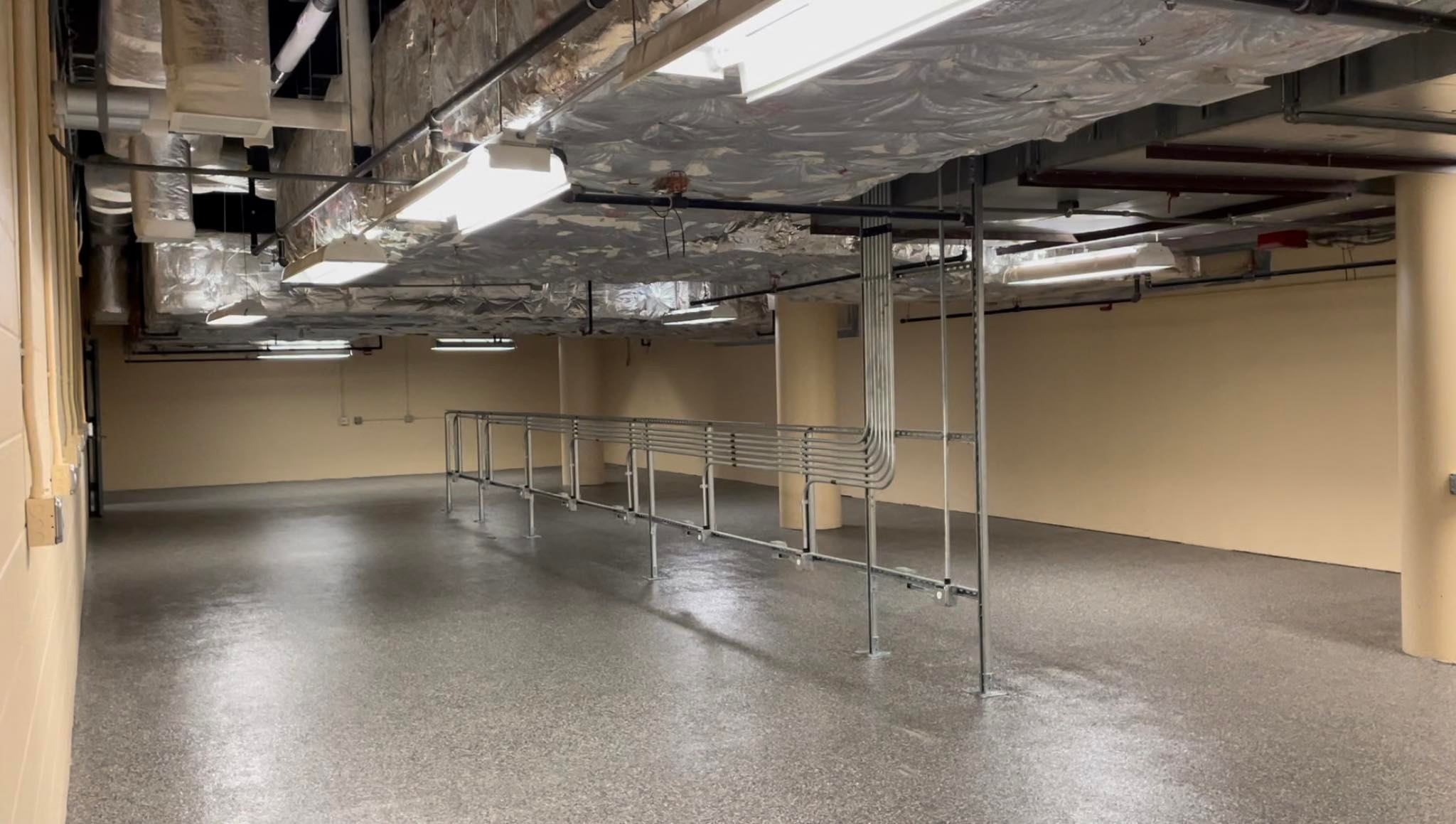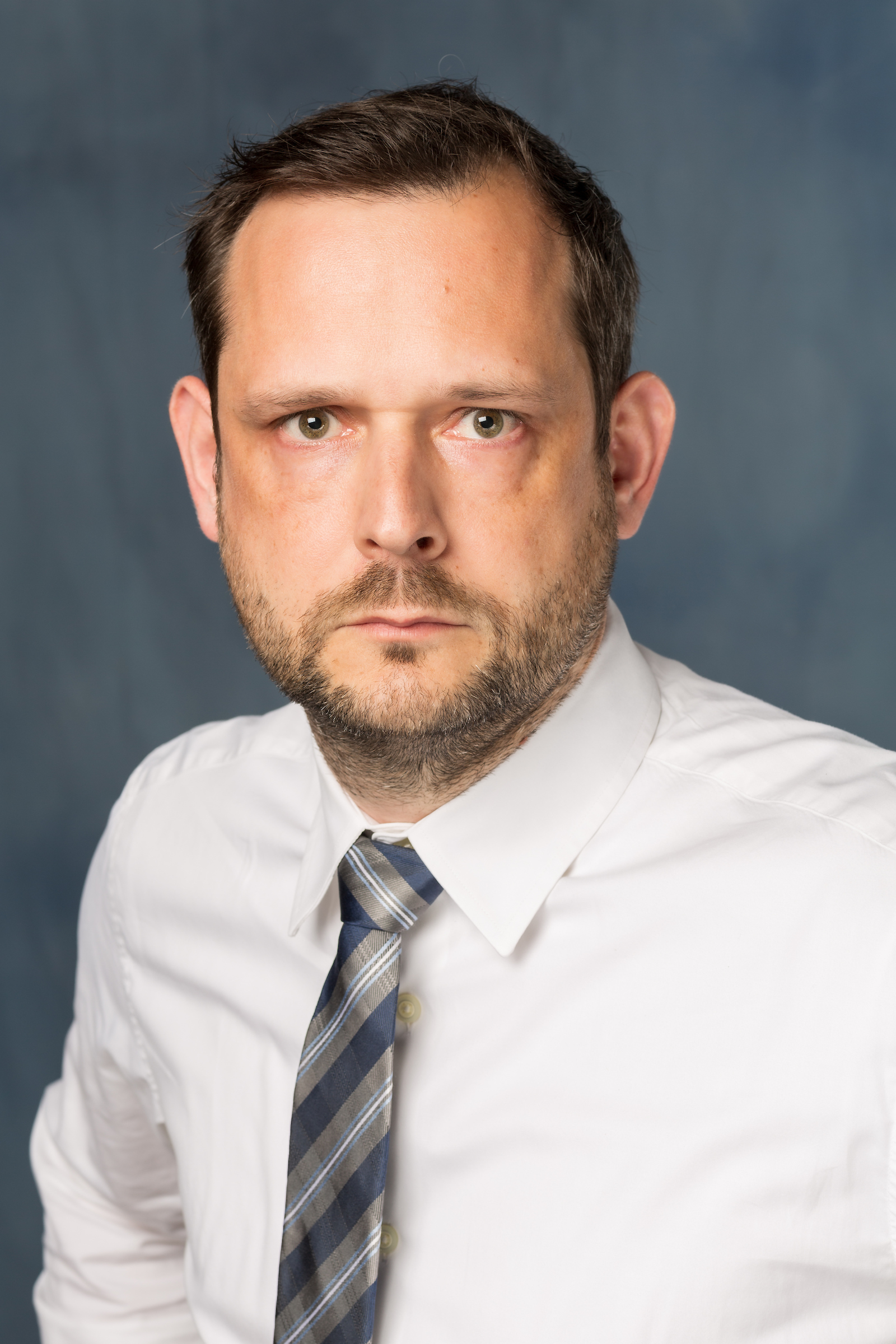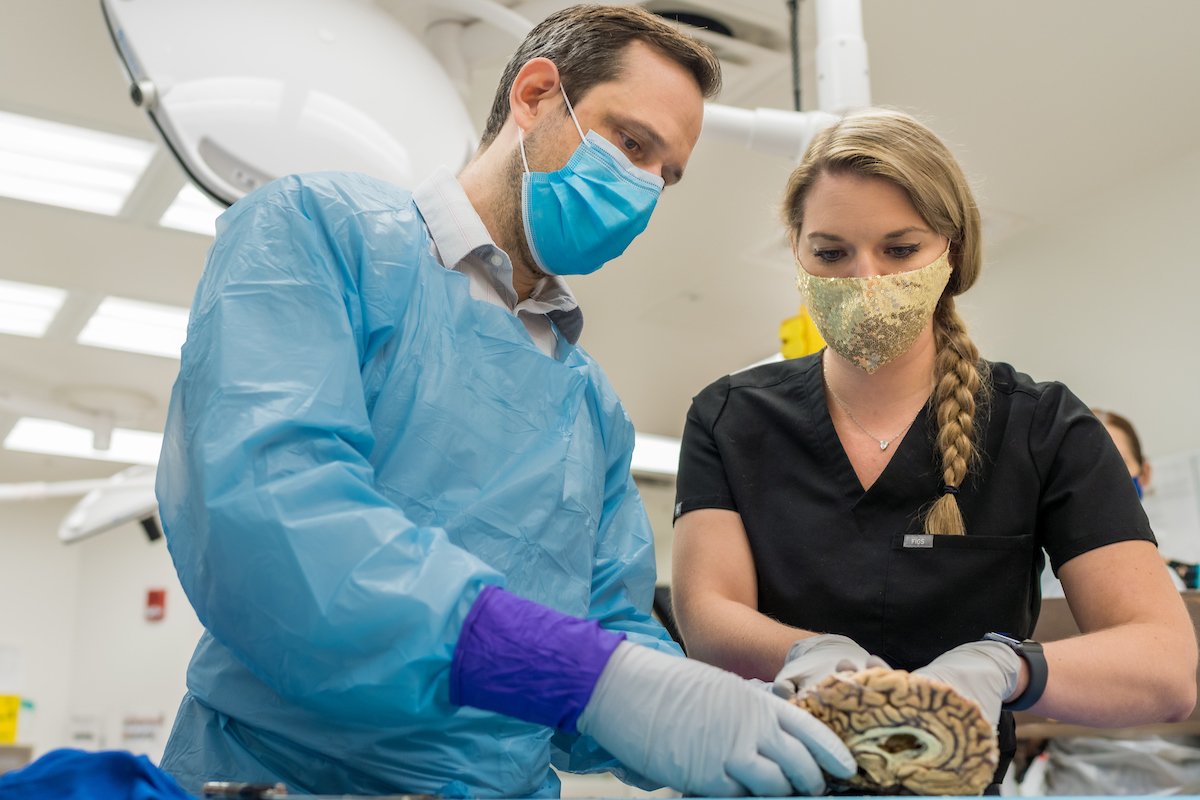By Michelle Jaffee

The UF Neuromedicine Human Brain and Tissue Bank underwent a $400,000 expansion this spring, offering researchers and students greater access to a large collection of samples as well as adjacent lab space to support investigations into many diseases of the brain. Leaders expect the new research space to open this summer.
Previously, sample storage has been restricted to a few freezers in multiple locations, but the newly renovated space in the basement of UF’s Academic Research Building includes capacity for 16 minus–80-degree freezers plus eight refrigerators to accommodate the university’s growing collection, said Kevin St.P. McNaught, Ph.D., chief operating officer of UF’s McKnight Brain Institute.
“There’s an urgent need to continue to perform postmortem analyses on brain materials to study disease processes,” said McNaught, who helped spearhead the expansion. “To advance these investigations, we need to be able to collect, store and process materials, and that’s been a limitation in the past few years with the existing facility.”

It is the latest step amid years of vigorous growth for the university’s brain and tissue bank, which has been led since 2019 by Stefan Prokop, M.D., the first dedicated neuropathologist to serve as director.
Currently, the collection includes 460 donated brains and 700 blood samples as well as skin and cerebral-spinal fluid — all critical to uncovering new insights into mechanisms of disease.
“Researchers pursuing studies with mouse models or cell cultures want to make sure their results are applicable to the human condition,” Prokop said. “You can’t do experiments in humans, so you have to find a model system, but a model system is not the disease. And that’s where the tissue comes in most — it can help confirm or validate findings.”
Expansion of the brain bank was paid for by the MBI, the UF College of Medicine, UF’s Center for Translational Research in Neurodegenerative Disease and the 1Florida Alzheimer’s Disease Research Center, a UF-led consortium of top research institutions that is funded by the National Institute on Aging.
 The brain bank plays an important role in providing missing pieces to the puzzle of vexing disorders such as Alzheimer’s disease, Parkinson’s disease and frontotemporal dementia, said Elias Sayour, M.D., Ph.D., assistant dean for clinical science research at UF.
The brain bank plays an important role in providing missing pieces to the puzzle of vexing disorders such as Alzheimer’s disease, Parkinson’s disease and frontotemporal dementia, said Elias Sayour, M.D., Ph.D., assistant dean for clinical science research at UF.
“Investments in the brain bank will lead to new scientific discoveries and new opportunities for therapeutic avenues for patients and improve clinical trials run by our physicians,” Sayour said.
For families of brain donors, an autopsy can provide long-awaited confirmation of a clinical diagnosis of a neurodegenerative or memory disorder.
In addition to the UF Neuromedicine Human Brain and Tissue Bank, UF’s Center for NeuroGenetics has a brain bank for ALS, myotonic dystrophy, spinocerebellar ataxia and other genetic neurological disorders, and the Norman Fixel Institute for Neurological Diseases at UF Health has a deep brain stimulation brain bank.

